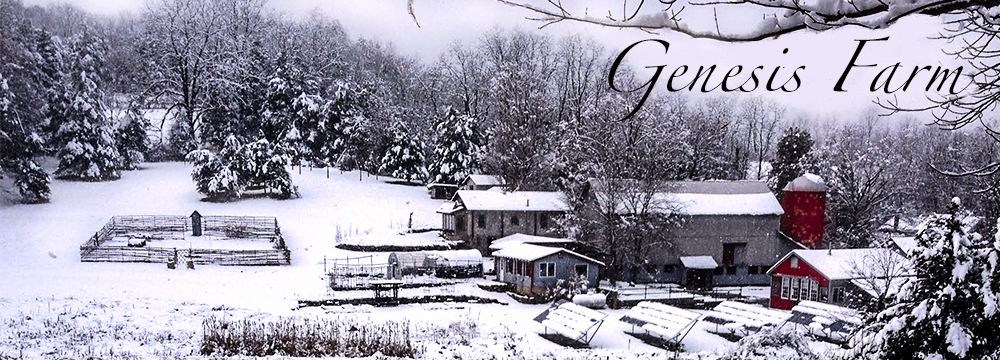
Five Smooth Stones: Bioregional Issues
Among the multiple issues affecting the planet, three have a particular urgency in our bioregion of northwest New Jersey. We keep challenging ourselves to address them with insights derived from Thomas Berry’s Origins of Rights of Nature, and to move from democracy (human-based philosophy of law, or jurisprudence) to biocracy (Earth jurisprudence).
The first threat is that of transgenic organisms. This term includes other more familiar terms such as GMO’s or genetically modified organisms or GE food--meaning genetically engineered food. Seeds everywhere are in danger of being contaminated by the pollen released from transgenic plants that Monsanto and other companies have engineered with genes from another species. This invasion of the cell is antithetical to the careful breeding of food crops over the millennia and threatens not only cultivated plants but all plant life. The need to protect the integrity and viability of all living plants is of utmost importance.
The second threat is the expansion of the Susquehanna to Roseland electrical power line. This a 130-mile expansion of the lines and towers from the Susquehanna Nuclear Generating Station in Berwick, Pennsylvania to Roseland, New Jersey. The line crosses the Delaware Water Gap National Recreation Area and other environmentally sensitive areas. This project perpetuates the myth that we can sustain our industrialized form of economic growth based on fossil fuel and nuclear energy dependency. At a time when we face the consequences of climate change due to burning carbon-based fuels and when we all live in the tragic wake of the ongoing radioactive poisoning resulting from the Fukushima Daiichi disaster, this kind of myth is dysfunctional.
The third threat is hydraulic fracturing of shale for natural gas extraction (hydrofracking or fracking). A deep geological formation called the Marcellus Shale (which is primarily in Pennsylvania, West Virginia, Ohio, and New York), contains up to 500 trillion cubic feet of locked natural gas. Fracking is a highly dangerous method of extracting this natural gas and runs the risk of ruining all the underground and above-ground waters that flow throughout this region. Almost nine billion gallons of water are consumed daily by 16,000,000 people in the Delaware River Basin. This is the same location where 15,000-18,000 wells could be drilled over the next three decades, threatening the life not only of people but of all the life communities of this region.
As indigenous wisdom reminds us, we do not inherit the Earth from our ancestors, we borrow it from our grandchildren. When we defend Earth against genetic engineering of seeds and life forms, energy overconsumption, and ecological devastation, we attempt to realign ourselves with the great web of Life. The context out of which we search to do this is rooted in the dynamics of Universe and Earth itself as we struggle to understand them. We hope the following articles will give you the background information to understand the seriousness of these issues. We encourage you to explore the different organizations and links provided at the end of each article, and to stay involved by subscribing to their alerts and other advocacy efforts.